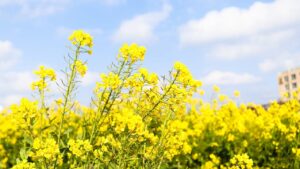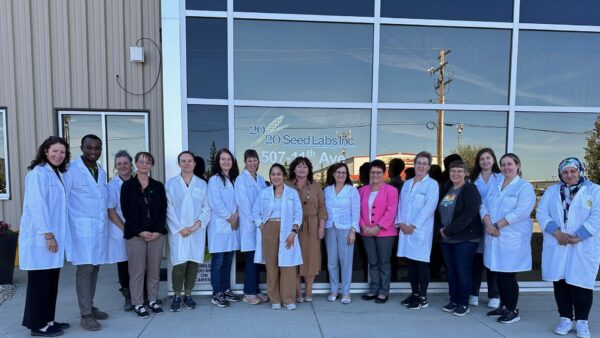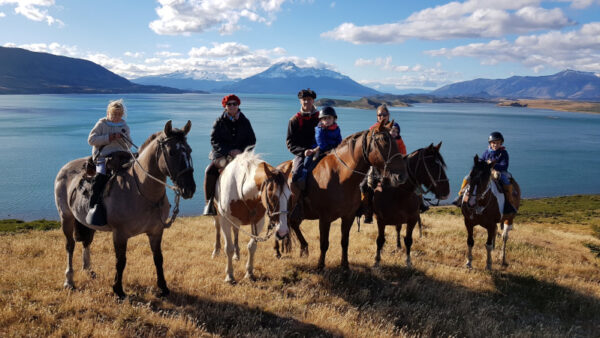
Wheat is a Different Game
“When I think about the future I can’t really predict it, but let’s look at what happened in soybeans and what might happen in cereals. It’s a different crop and the speed of putting biotech technology is in question, but they’re both open pollinated [crops] and have a large seeding rate. What can be applied to wheat, oats and barley? I think that the large companies who are successful in corn and canola need to do something different for cereals, just to handle the physical conditioning and distribution of seed. It’s on a totally different scale. Whether biotech or not, the large companies are showing an interest in cereals, but they can’t do it the same way they’ve done it with corn and canola. How can seed companies strategize about what might [happen] in five or ten years and position themselves to be in the right spot at the right time, and aligned with one or more partners who will need their services?”
—Rob Hannam of Synthesis Agri-Food Network
Partnerships Key to Managing Consolidation
“Small companies need to partner with the larger developers. The consolidation we have seen over the past decade can be seen as a threat to small companies but partnering should be seen as an opportunity,” says Dale Adolphe of the Canadian Seed Growers Association. “Yes, it results in less independence for the smaller, independent seed retailers, but it does result in being able to maintain a viable business unit operating in the community or region in which the smaller, independent had built their business.”
Seed Business Goes Online
“Seed connectivity is essential to e-business—it supports more accurate and timely data, allowing companies to increase their efficiencies,” says Lori Edwards, chair of AgGateway’s Seed Council and business process analyst manager at Syngenta. Edwards is part of a group of 20 companies in the seed industry working collaboratively within AgGateway on a project called Seed Connectivity II, which will improve e-business processes such as streamlining the seed supply chain, establishing electronic connectivity among many manufacturers, distributors and retailers for shipping, invoicing and reporting, as well as for price sheets, seed bookings and orders. “By the end of this project, we will have created e-connectivity solutions for the seed ordering and inventory management processes, which is a major step forward for e-business in this key agricultural sector,” adds project board chair Greg Erler, the electronic business to business manager at Monsanto Company.
Coming Together on LLP
Following two intergovernmental meetings a declaration of an “International Statement on Low Level Presence” has now been endorsed by 13 countries, including Canada and the United States. The EU is missing from the list of signatories. The declaration, which has been published on several government websites, states in part that “there is an immediate need to address the risk to trade arising from LLP occurrences, a risk that impacts importing and exporting countries alike, and global food security in general … Recognizing the need for action, we, importing and exporting countries, have decided to discuss the issue of LLP; exchange information on its origin and potential implications on the agricultural trading system; and begin the development of an approach or set of approaches to manage LLP internationally … Therefore, we, importing and exporting countries, have decided to work collaboratively on the issue of LLP to facilitate international trade of agriculture commodities by developing practical approaches, designed to address LLP globally … continue to work collaboratively to address the overarching problem of asynchronous approvals, while working to mitigate the impact of LLP situations … work collaboratively to address the risk of trade disruptions resulting from LLP in order to facilitate international trade of agriculture commodities by developing an approach or approaches, designed to facilitate the management of LLP globally.”
The list of countries endorsing the “International Statement on Low Level Presence” are Australia, Argentina, Brazil, Canada, Chile, Costa Rica, Mexico, Paraguay, Philippines, Russia, United States, Uruguay and Vietnam.·
Syngenta Becomes Canada’s Newest Canola Seed Player
“This is an exceptional time to be in the canola seed market given the extent of breeding and varietal development activities going on across the country,” explains Dave Sippell, head of diverse field crops in North America for Syngenta. “Our approach is to take advantage of the best that these activities have to offer, allowing us to collaborate with a variety of canola providers and breeders to select the germplasm and traits that will deliver the greatest benefit to growers, and commercialize the resulting varieties.”
“This is an exceptional time to be in the canola seed market.”
Growing Canola Forward
“Certainly, we need research to help us continually improve the productivity of the crop and the quality of our products and, in concert with the federal government, the Canola Council is leading in research and innovation—but a resilient crop and superior products do us little good if doors to global markets are closed,” said the Canola Council of Canada’s president Patti Miller at a recent Standing Committee on Finance meeting. “About 85 per cent of Canadian canola is exported. That means we need to open the doors to new markets, and we need to keep them open. Without those markets, the growth of one of Canada’s most promising agricultural sectors could be interrupted.” Miller’s message was that in order to sustain the momentum of Canada’s canola industry, government needs to support strategic investments and policy direction in three priority areas: research, market development and market access.














